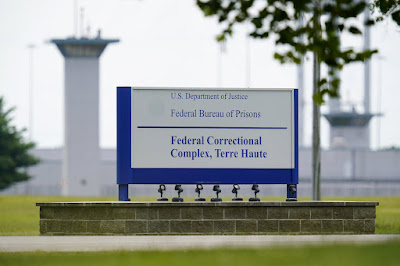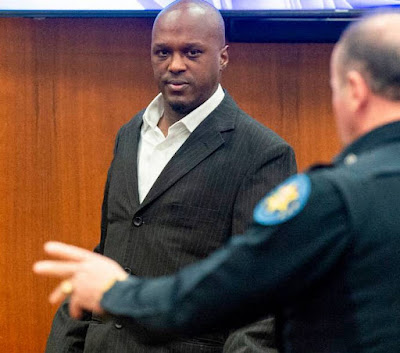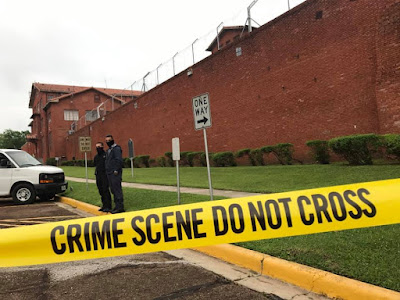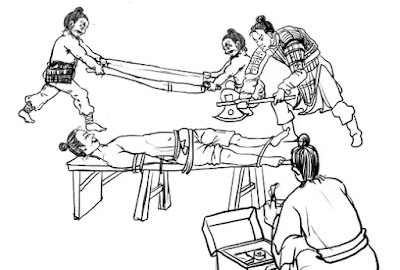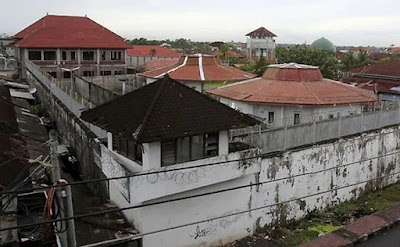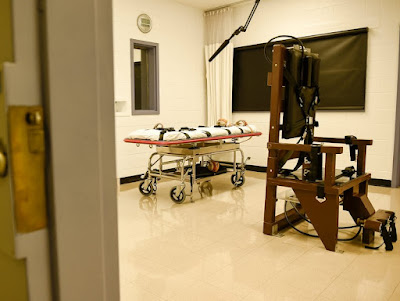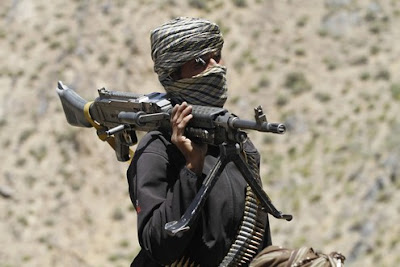 |
| 'The 15-year war is taken an increasingly brutal turn.' |
KABUL — In a remote area of Afghanistan, where thousands of years of hardscrabble tribal culture increasingly mixes with a resurgent Taliban militancy, this is how Fazl Ahmad allegedly died.
Local officials in Ghor province said one of Ahmad’s distant relatives was suspected of killing a former Taliban commander. In December, militants dragged Ahmad from his house and cut out his eyes in retaliation.
Ahmad was still alive and screaming when the attackers began carving the skin off his chest, leaving his heart exposed. Then they threw the 21-year old laborer off a 10-story cliff, officials said.
“They skinned him alive,” said Ruqiya Naeel, a member of parliament from the area.
The Taliban denied involvement in the grisly crime, the aftermath of which was documented in a recently circulated video and photograph.
But even so, Ahmad’s death is the latest in a string of violent acts across Afghanistan over the past six months. Rattled officials say the 15-year war is taken an increasingly brutal turn.
“The amount of casualties, particularly with civilians, is a crime — a crime against humanity, a crime against Afghanistan, and a crime against our people,” a somber Afghan President Ashraf Ghani said in a meeting with reporters last week.
Since 2001, the United States has invested more than $100 billion building Afghan military and police forces, a judicial system and schools in hopes of moving the country closer to normality. But all that spending appears to have done little to slow a cycle of rage and revenge that has made Afghanistan one of the world’s most dangerous countries.
Horrific violence is nothing new in Afghanistan.
Public executions were common when the Taliban ruled the country in the 1990s, and tens of thousands of Afghans have been killed during the post-2001 Taliban insurgency. Afghanistan, like neighboring Pakistan, also has a long history of cultural and religious conservatism associated with violent retribution.
But analysts say the scale of the brutality continues to evolve as the Taliban becomes more fragmented and pushes out into additional areas of Afghanistan. Younger Taliban commanders also now operate more independently and are increasingly inspired by other brutal acts easily viewed on the Internet, the say.
As the original leaders of the insurgency die, they are being replaced by younger commanders who appear less interested in maintaining ties to the local areas in which they are fighting. These fighters also are more connected through the Internet to the global ambitions of militant Islamic groups, which is resulting in some Taliban commanders’ attempting to borrow the fear tactics used by the Islamic State in Iraq and Syria.
Source: The Washington Post, Tim Craig, June 11, 2016
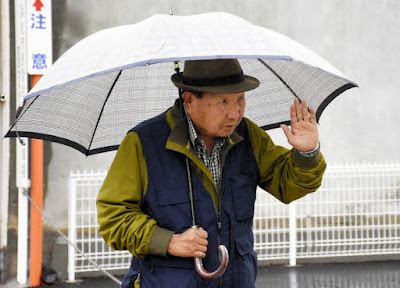


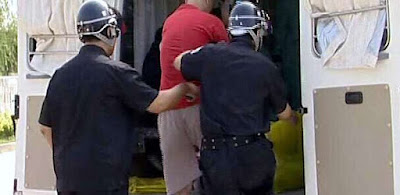
.jpg)
